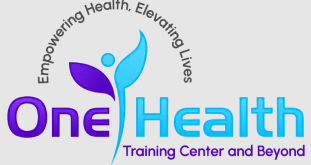Everything You Need to Know About Home Health Aide Certification

A Home Health Aide (HHA) is a healthcare professional trained to provide basic personal care and health-related services to individuals in their homes. They assist elderly, chronically ill, or disabled individuals who need help with daily living activities but prefer to remain in their homes instead of moving to a nursing facility.
As the demand for in-home care rises due to an aging population, the role of HHAs becomes increasingly important. However, to begin this fulfilling and essential career, one must obtain a home health aide certification.
Why Home Health Aide Certification Matters
Legal Requirement in Most States
In many states, working as a certified home health aide is a legal requirement. Federal guidelines, especially for aides working with Medicare or Medicaid-certified agencies, mandate proper training and certification.
Builds Trust and Credibility
Certification assures employers and clients that you are trained and capable of providing quality care. Families seeking assistance for their loved ones want someone they can trust, and having certification increases your credibility in their eyes.
Improves Job Prospects and Earnings
Becoming certified can open the door to more job opportunities and higher wages. Certified aides are more likely to be hired by reputable home health agencies and can often command better pay compared to uncertified caregivers.
What Does Home Health Aide Certification Involve?
Educational Prerequisites
To become a home health aide, you typically need a high school diploma or GED. However, this may vary by state or employer. Some training programs may also include a basic literacy or math assessment.
Training Programs
HHA training programs are offered by vocational schools, community colleges, and healthcare institutions. These programs typically include:
-
Classroom instruction: Covering topics such as anatomy, nutrition, infection control, and patient rights.
-
Hands-on clinical training: Supervised practice in a real-world setting like a nursing facility or home care environment.
According to federal requirements, the training must include at least 75 hours, including 16 hours of clinical practice. Some states require additional hours or specialized modules.
Certification Exam
Once training is completed, candidates must pass a competency exam. This usually involves:
-
A written test (or oral if preferred).
-
A skills demonstration, where you show proficiency in areas like bathing a patient, checking vital signs, and assisting with mobility.
Passing this exam grants the home health aide certification, which is often registered with the state health department or board of nursing.
Choosing the Right HHA Training Program
When selecting a program, consider the following:
Accreditation
Make sure the program is state-approved and meets federal requirements, especially if you want to work for Medicare-certified agencies.
Cost and Financial Aid
Training costs can range from $300 to $1,500, depending on the institution and location. Many programs offer financial aid, scholarships, or payment plans.
Program Format
Programs may be in-person, online, or hybrid. While online courses provide flexibility, make sure they include in-person clinical training, as required by most states.
Where to Get Certified
You can obtain home health aide certification from several types of institutions, including:
-
Community colleges
-
Vocational training centers
-
Healthcare organizations
-
Online schools (with in-person clinical components)
Each state has its own list of approved programs, often available on the state health department’s website.
Maintaining Your Certification
Once certified, you’ll likely need to:
-
Renew your certification every 1–2 years, depending on your state.
-
Complete continuing education hours, often ranging from 12 to 24 hours annually.
-
Stay updated on best practices and patient care guidelines.
Working regularly in the field helps maintain your certification status. Inactive aides may need to retake the exam or undergo refresher training.
Career Opportunities for Certified HHAs
With your home health aide certification, several career paths become available:
Private Duty Home Care
Working directly with clients in their homes, often on a long-term basis.
Home Health Agencies
Providing care under the supervision of registered nurses or therapists, often involving visits to multiple clients.
Assisted Living Facilities
Some aides work in assisted living communities, offering residents help with their daily routines.
Specialized Care
You may focus on specific types of care, such as dementia care, hospice care, or care for patients with chronic conditions like diabetes or Parkinson’s disease.
Skills and Qualities That Make a Great Home Health Aide
Certification gives you the credentials, but certain personal traits make you stand out:
-
Compassion and patience: Many clients may have physical or mental challenges.
-
Good communication skills: You’ll interact with clients, family members, and healthcare professionals.
-
Reliability and punctuality: Families depend on your consistency.
-
Attention to detail: Monitoring changes in your client's health is crucial.
Final Thoughts on Getting Certified
Becoming a certified home health aide is more than just a career move—it’s a commitment to caring for those who need it most. The process involves classroom learning, hands-on experience, and a certification exam, but the rewards are worth it.
- Art
- Causes
- Crafts
- Dance
- Drinks
- Film
- Fitness
- Food
- Games
- Gardening
- Health
- Home
- Literature
- Music
- Networking
- Other
- Party
- Religion
- Shopping
- Sports
- Theater
- Wellness


